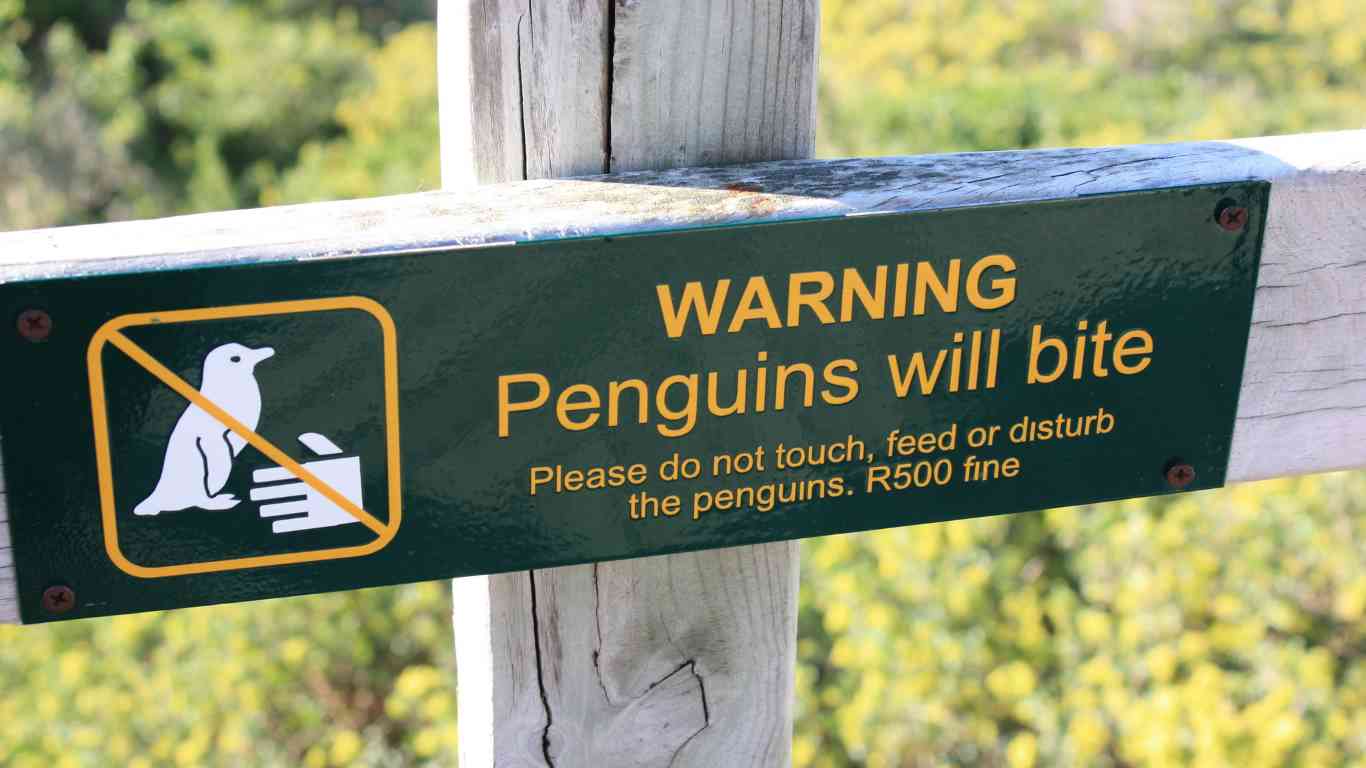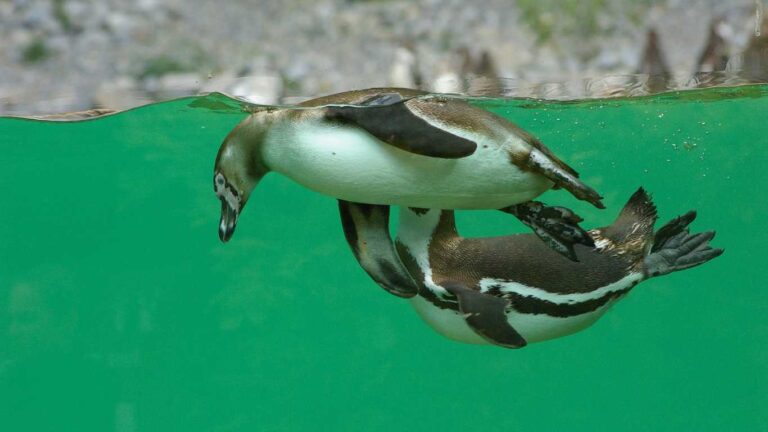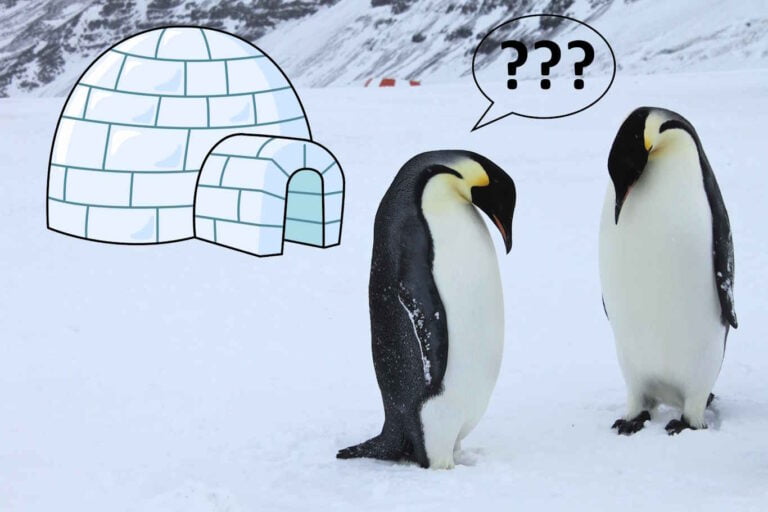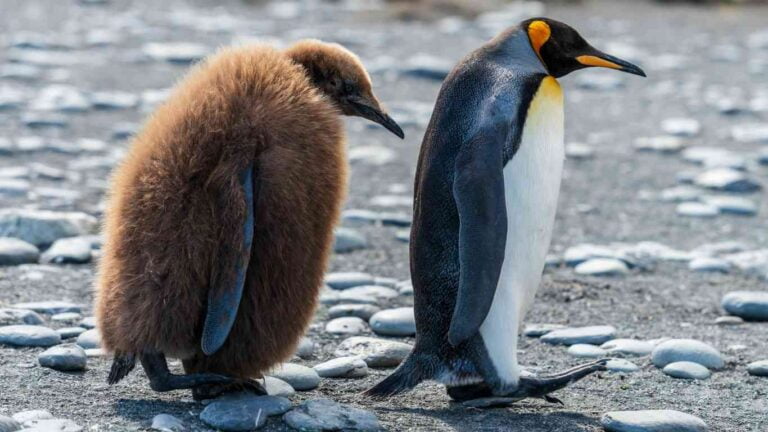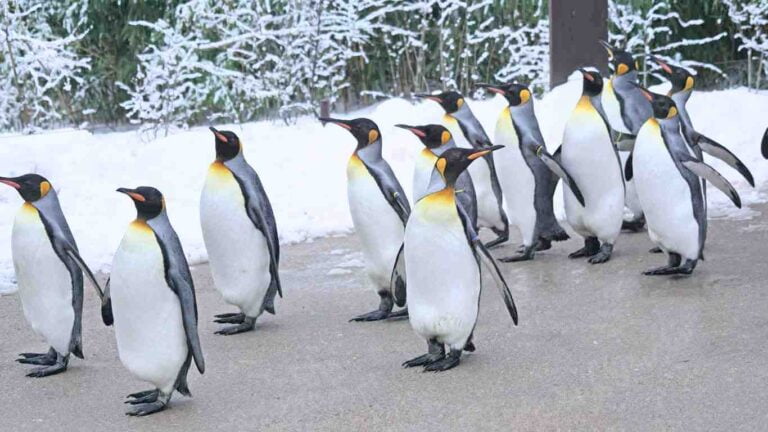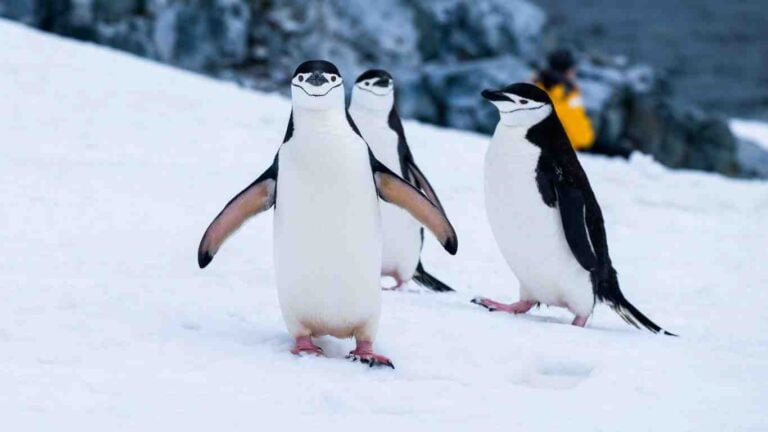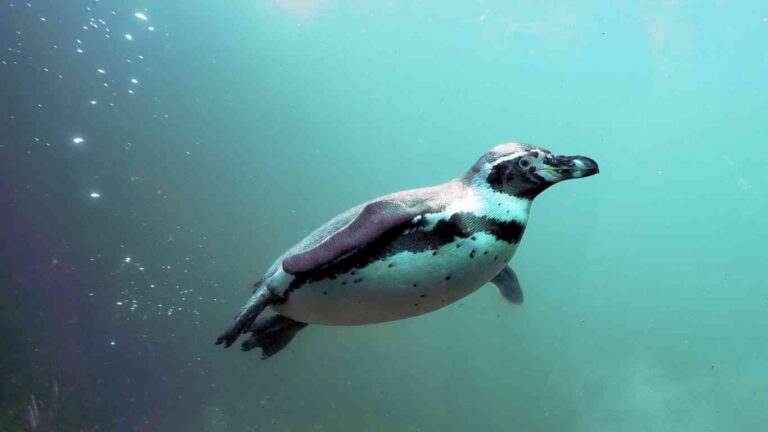Do Penguins Bite Humans? (Animal Habits Explained)
Penguins are generally known as non-aggressive and friendly creatures, endearing themselves to people both in the wild and in captivity. However, like most wild animals, penguins can sometimes bite people.
This behavior isn’t typically a show of aggression but rather a defensive response or a byproduct of curiosity, especially when they are feeling threatened or are protecting their territory or offspring.
Do Penguins Bite Humans?
Penguins may bite if they perceive a human as a predator or an intruder. During breeding season, they are particularly protective and may nip at anything that gets too close to their nests.
Research has shown that while bites can break the skin, they rarely result in serious injury. Visitors to penguin habitats, such as researchers and tourists, are advised to maintain a respectful distance.
Observe any guidelines provided by wildlife agencies or tour operators to decrease the likelihood of disturbing these birds and avoiding potential bites.
The beak structure of penguins varies from species to species, with some equipped with relatively blunt beaks while others have sharper ones.
The Gentoo penguin, for example, has a long, pointed beak that could inflict a more painful bite.
Conversely, the shorter beak of the Emperor penguin might not penetrate skin as easily, but any penguin’s bite could potentially lead to bruising or abrasions due to the force they can exert.
In terms of incidence, penguin bites are not a common concern. Those who work closely with penguins, like zookeepers and researchers, do experience bites occasionally, but they are equipped with protective gear and training on how to handle these situations.
For zoo visitors and those encountering penguins in the wild, following safety guidelines and keeping a reasonable distance typically prevents any negative encounters.
Despite their potential to bite, penguins do not inherently pose a significant risk to humans. Understanding their behavior, respecting their space, and following proper protocols usually ensure a safe experience for both humans and penguins.
It’s crucial to bear in mind that penguins use their beaks to play, communicate, build nests, and groom themselves or each other; biting is not a primary form of interaction for them.
Education is key for any interaction in wildlife spaces, understanding why animals might display certain behaviors like biting helps us foster peaceful coexistence with them.
Penguins, as captivating as they are in their natural behavior, command the same respect and caution as any wild animal, and as such, interactions should always be approached with mindfulness and care to avoid any unwelcome experiences.
Do Penguins Bite or Peck?
Penguins can bite or peck when they feel threatened or when their territory is encroached upon but generally they are not aggressive to humans.
These flightless birds, primarily found in the Southern Hemisphere, are more inclined to peck because of their territorial instincts.
This behavior is natural and serves as a protective measure or a means to assert dominance, particularly during the breeding season when their nests and young need defending.
Penguins have a beak that was adapted over thousands of years to catch fish, so they are certainly capable of a peck or a bite when the situation requires it.
Do Penguins Bite Hard?
Penguins can bite hard. Their beaks are evolved to grasp slippery fish with precision and strength, which translates into a powerful bite when utilized against a perceived threat.
The force behind a penguin’s bite varies among different species, with larger penguins generally capable of stronger bites.
For example, the bite of an Emperor Penguin would naturally exert more force than that of a smaller species, such as the Little Blue Penguin.
Does a Penguin Bite Hurt?
Whether or not a penguin bite hurts would depend on the size of the penguin and the intensity of the peck or bite.
For smaller penguin species, a bite may not be particularly painful and could feel more like a nip. However, the larger species have been known to cause bruising and even cuts with their bites.
Since penguins carry their own set of bacteria, as all animals do, it is also pertinent to consider that any break in the skin could require medical attention to prevent infection.
It should be noted, though, that serious injuries from penguin bites are very rare, as these encounters are not common due to the remote habitats of most penguin species.
Nonetheless, ensuring respectful and safe interactions with wildlife, including penguins, means keeping an appropriate distance and observing them without provoking any aggressive behavior.
(Featured image by Kim Nowacki)

